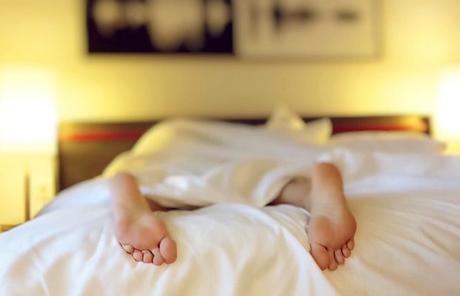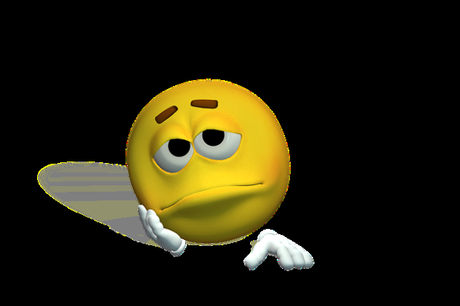
Being over-tired doesn't feel good. Sleep deprivation comes with a cranky malaise, yet most of us continue to behave as if it's no big deal that we are often exhausted. In fact, many of us wear our sleep deprivation as a badge of honor. We glamorize our ability to pull all-nighters and burn the candle at both ends because we are a nation built on the notion that if you snooze you lose-or, as the late Warren Zevon put it, I'll sleep when I'm dead. We look at sleep as a barrier to success, fun, and self-fulfillment, even though sleep deprivation is physiologically and psychologically dangerous. It's time to face up to the risks associated with our culture of sleep deprivation.
Most of us are familiar with the first signs of sleep deprivation, such as feeling irritable, having difficulty concentrating, and suffering from fatigue. Instead of resting, though, we drink another cup of coffee and power through.
Unfortunately, the cumulative impact of sleep deprivation is more dangerous than generally acknowledged. A body of sleep research shows that lack of sleep can be responsible for depression, anxiety, stress, and panic attacks, as well as a myriad of health problems, including heart disease, diabetes, migraines, increased risk for cancer, strokes, and dementia.
Sleep Deprivation = Torture
There's a reason that sleep deprivation is a common method of torture. Detainees who are forced to stay awake experience disorientation, disturbing hallucinations, and lethargy. If pushed too far, they suffer physical and mental breakdowns.
The more sleep deprived you are, the more fragile you feel. Small problems can feel insurmountable, a mental state that interferes with our interpersonal relationships, including the ability to parent.
Without sleep, the body and brain aren't given the time they need to heal and recover. "Sleep deprivation is an especially insidious form of torture because it attacks the deep biological functions at the core of a person's mental and physical health," explains Sleep and Dream Database Director Kelly Bulkeley.

The poet Sylvia Plath wrote in her journal, "I wonder why I don't go to bed and go to sleep. But then it would be tomorrow, so I decide that no matter how tired, no matter how incoherent I am, I can skip an hour more of sleep and live." One can't help but wonder if Plath's creative flame might have flickered a little longer if in her struggle with depression, sleep had been taken more seriously.
For anyone who struggles with mental or medical ailments, lack of sleep is even more dangerous. The body and brain need the regenerative gifts of sleep. Why, then, are so many of us not taking the necessary steps to get a good night's sleep?
FOMO-Fear of missing out
We've all seen exhausted kids throw tantrums when asked to go to bed. Why do they scream "I'm not tired!" when, clearly, they are? Because they feel like they will be missing out if they go to sleep.
Too often, adults replay this scenario, even if (mostly) without the hysterics. I'm sure we can all relate to actor James Franco's observation: "I don't even like to sleep-I feel as if there's too much to do." The belief that sleep is a barrier to self-development runs deep in our culture. Dale Carnegie, the father of self-improvement, wrote in the 1930s, "If you can't sleep, then get up and do something instead of lying there and worrying. It's the worry that gets you, not the lack of sleep." But there's a hitch. FOMO can lead to poor decision making and illness.
"I was proud of working 18 hours a day and sleeping three hours a night," says Rapper and businessman Sean Combs. "It's something now that has turned into a problem for me: not being able to sleep...having insomnia." Entrepreneur Arianna Huffington became a sleep evangelist after a dramatic wake-up call: she collapsed from exhaustion one day, and as she fell to the ground, she broke her cheekbone on the corner of a desk. Realizing that she'd been sleepwalking through her life, Huffington wrote the book The Sleep Revolution, which chronicles the global crisis of sleep deprivation and serves as call to action-or, rather, a call to sleep.
The myth of competitive advantageOne of the greatest barriers to combatting our culture of sleep deprivation is the long-held notion that success is linked to burning the midnight oil. Shipping magnate Aristotle Onassis quipped, "If you sleep three hours less each night for a year, you will have an extra month and a half to succeed in."
But equating lack of sleep with productivity is a slippery slope. Yes, more hours awake may equal more output at the start, but over the long term, there are significant risks to your own health and others. For example, Barnes and Hollenbeck examined the impact of sleep deprivation on work teams and found a host of negative effects, including a reduced ability to process information, learn, and perform new tasks.

The bravado of workaholics is undermined by research. In fact, some of the worst accidents in history, including the Chernobyl and Three-Mile Island nuclear disasters, were caused by team error between the hours of 2-4 a.m., a time when people are especially likely to be sleep deprived. Similarly, loss of human life on highways and railways, in the air, and in our hospitals have been linked to human exhaustion. Instead of clapping employees on the back for working overtime, it's time for employers to encourage them to go home and get some rest at the end of their shifts.
The good news
There's no reason to wear sleep deprivation like a badge of honor. Sleep doesn't make us miss out or get left behind. Quite the opposite: being well-rested allows us to live richly and experience all that life has to offer. So, to quote the title of the best-selling satirical children's book, Go the F**k to Sleep!
This guest post was authored by Dr. Marika Lindholm.


Ms. Career Girl was started in 2008 to help ambitious young professional women figure out who they are, what they want and how to get it.

